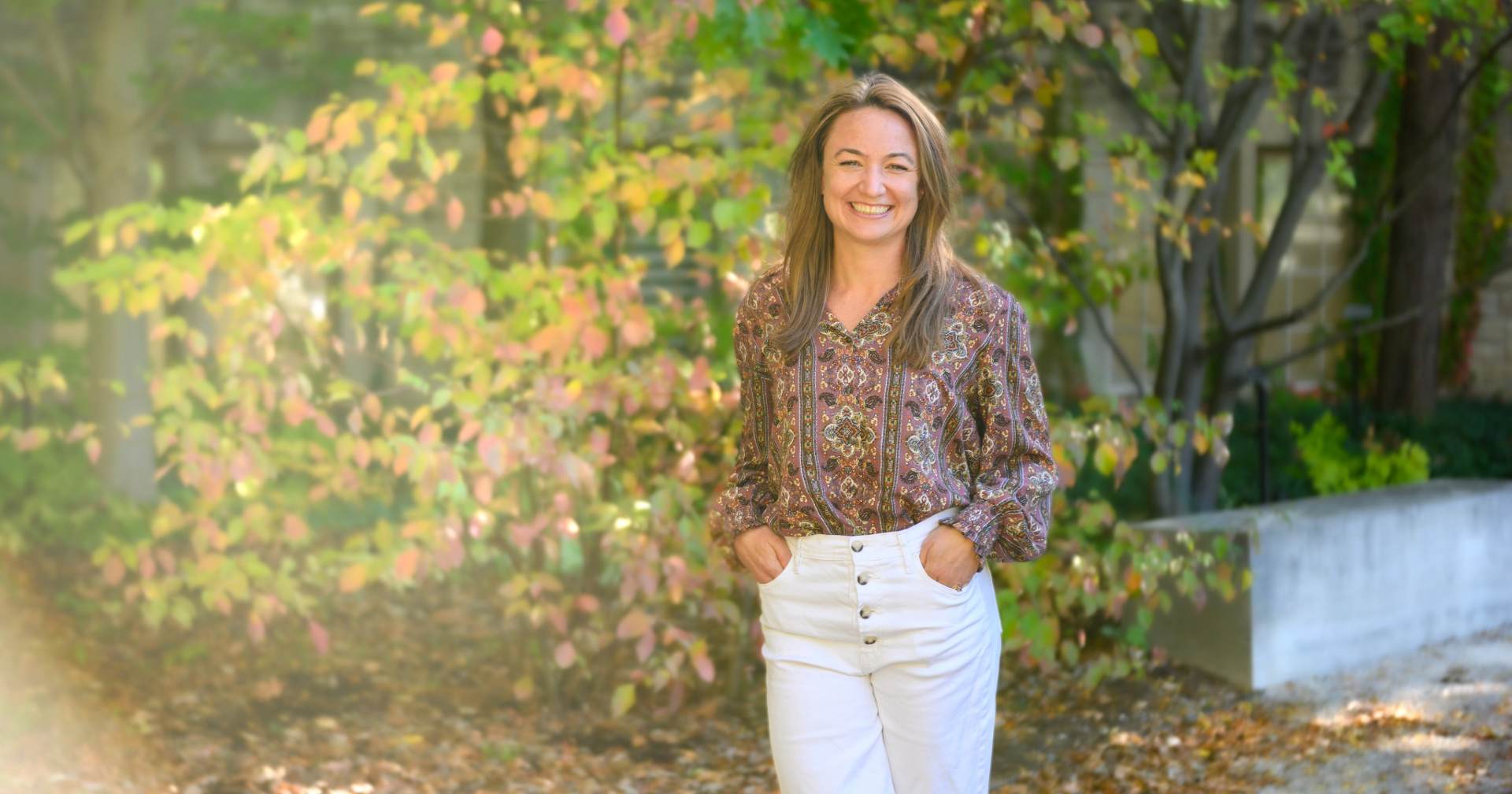Education
Neuroscientist Breanne Kearney Explores Trauma’s Impact on the Body

A remarkable journey in neuroscience culminated this month as Breanne Kearney graduated from Schulich Medicine & Dentistry with her PhD, earning the prestigious Governor General’s Gold Medal for outstanding academic achievement. Kearney’s research focuses on the intricate relationship between trauma and the brain’s sensory-motor networks, particularly in individuals living with post-traumatic stress disorder (PTSD).
Kearney’s interest in neuroscience was sparked unexpectedly during a neurology course while she was training as an occupational therapist at the University of New Hampshire. Her career path shifted dramatically after working with children facing behavioral challenges, including a six-year-old boy whose transformation through therapy deeply impacted her perspective.
Upon entering Kearney’s care, this boy had been expelled from multiple schools, struggling with anger and emotional regulation. Through engaging activities such as movement and play, Kearney helped him develop crucial emotional skills, leading to his successful graduation from first grade just six months later. This experience prompted Kearney to delve deeper into the connections between sensory processing and trauma, ultimately steering her toward academic research.
Innovative Research on Trauma and Sensory Processing
Under the guidance of noted researcher Dr. Ruth Lanius, Kearney’s PhD research employs functional MRI technology to explore how trauma manifests physically within the body. She aims to uncover the neurological underpinnings of the visceral sensations often experienced by trauma survivors, including tension and pain.
“Many people with trauma feel it in their bodies – tension, pain or visceral unease,” Kearney explains. “We wanted to know what parts of the brain correspond with this sense of reliving things somatically in the body.”
Kearney’s research also investigates a novel psychotherapy known as deep brain reorienting, which addresses the fundamental reflexive responses to traumatic events. “This therapy focuses on the shock response from the lowest part of the brain, before any thoughts or feelings,” she notes, emphasizing its unique approach to trauma treatment.
In clinical trials, Kearney and her colleagues observed significant symptom improvements among participants, particularly those who had not responded to traditional therapies. “It offers another option for people, especially those who don’t do well with exposure or talk therapy,” she said.
A Pathway to Future Research and Practice
Raised in Long Island, NY, Kearney spent six years in Portland working with children and adolescents facing neurodevelopmental challenges before pursuing a master’s degree in cognitive neuroscience at University College London. A pivotal moment in her journey was reaching out to Dr. Lanius via email, expressing her belief in the potential of their collaborative work.
“I still can’t believe I cold emailed Dr. Lanius, having no clue how much of a giant she is in this field,” she recalled with amusement. This connection led her to a fulfilling career that uniquely blends clinical practice with scientific inquiry.
With her doctoral studies now complete, Kearney is continuing her research as a postdoctoral scholar at Schulich Medicine & Dentistry while working toward her licensure in Canada. She intends to maintain a balance between research and occupational therapy, emphasizing the importance of real-world clinical experience.
“I’m passionate about having a foot in research while still keeping myself in the reality of seeing people in the clinic,” Kearney stated. “It just gives me such a richer understanding. And working with people, especially children – that’s my heart’s work.”
Kearney’s dedication to understanding and treating trauma through the lens of neuroscience signals a promising future for both her career and for the many individuals who may benefit from her innovative approaches.
-

 Lifestyle2 months ago
Lifestyle2 months agoWinnipeg Celebrates Culinary Creativity During Le Burger Week 2025
-

 Health2 months ago
Health2 months agoMontreal’s Groupe Marcelle Leads Canadian Cosmetic Industry Growth
-

 Science2 months ago
Science2 months agoMicrosoft Confirms U.S. Law Overrules Canadian Data Sovereignty
-

 Education2 months ago
Education2 months agoRed River College Launches New Programs to Address Industry Needs
-

 Science2 months ago
Science2 months agoTech Innovator Amandipp Singh Transforms Hiring for Disabled
-

 Technology2 months ago
Technology2 months agoDragon Ball: Sparking! Zero Launching on Switch and Switch 2 This November
-

 Technology2 weeks ago
Technology2 weeks agoDiscord Faces Serious Security Breach Affecting Millions
-

 Technology2 months ago
Technology2 months agoGoogle Pixel 10 Pro Fold Specs Unveiled Ahead of Launch
-

 Science2 months ago
Science2 months agoChina’s Wukong Spacesuit Sets New Standard for AI in Space
-

 Education1 month ago
Education1 month agoBrandon University’s Failed $5 Million Project Sparks Oversight Review
-

 Technology2 months ago
Technology2 months agoWorld of Warcraft Players Buzz Over 19-Quest Bee Challenge
-

 Education2 months ago
Education2 months agoAlberta Teachers’ Strike: Potential Impacts on Students and Families
-

 Business2 months ago
Business2 months agoDawson City Residents Rally Around Buy Canadian Movement
-

 Technology2 weeks ago
Technology2 weeks agoHuawei MatePad 12X Redefines Tablet Experience for Professionals
-

 Business2 months ago
Business2 months agoNew Estimates Reveal ChatGPT-5 Energy Use Could Soar
-

 Science2 months ago
Science2 months agoXi Labs Innovates with New AI Operating System Set for 2025 Launch
-

 Technology2 months ago
Technology2 months agoFuture Entertainment Launches DDoD with Gameplay Trailer Showcase
-

 Technology2 months ago
Technology2 months agoInnovative 140W GaN Travel Adapter Combines Power and Convenience
-

 Technology2 months ago
Technology2 months agoGlobal Launch of Ragnarok M: Classic Set for September 3, 2025
-

 Business2 months ago
Business2 months agoBNA Brewing to Open New Bowling Alley in Downtown Penticton
-

 Business1 month ago
Business1 month agoRocket Lab Reports Strong Q2 2025 Revenue Growth and Future Plans
-

 Technology2 months ago
Technology2 months agoNew IDR01 Smart Ring Offers Advanced Sports Tracking for $169
-

 Technology2 months ago
Technology2 months agoArsanesia Unveils Smith’s Chronicles with Steam Page and Trailer
-

 Science2 months ago
Science2 months agoNew Precision Approach to Treating Depression Tailors Care to Patients










